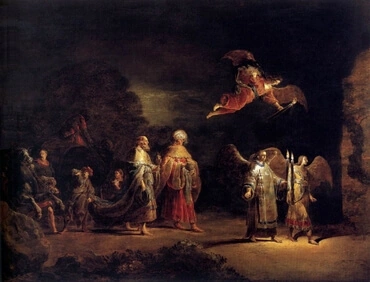1
And the Lord said to me: Go yet again, and love a woman beloved of her friend, and an adulteress : as the Lord loveth the children of Israel, and they look to strange gods, and love the husks of the grapes.
2
And I bought her to me for fifteen pieces of silver, and for a core of barley, and for half a core of barley.
3
And I said to her: Thou shalt wait for me many days: thou shalt not play the harlot, and thou shalt be no man's, and I also will wait for thee.
4
For the children of Israel shall sit many days without king, and without prince, and without sacrifice, and without altar, and without ephod, and without theraphim.
5
And after this the children of Israel shall return, and shall seek the Lord their God, and David their king: and they shall fear the Lord, and his goodness in the last days.







